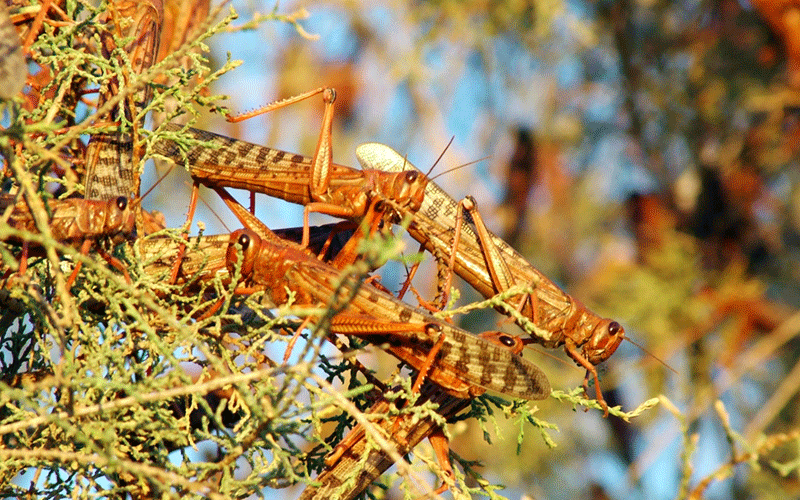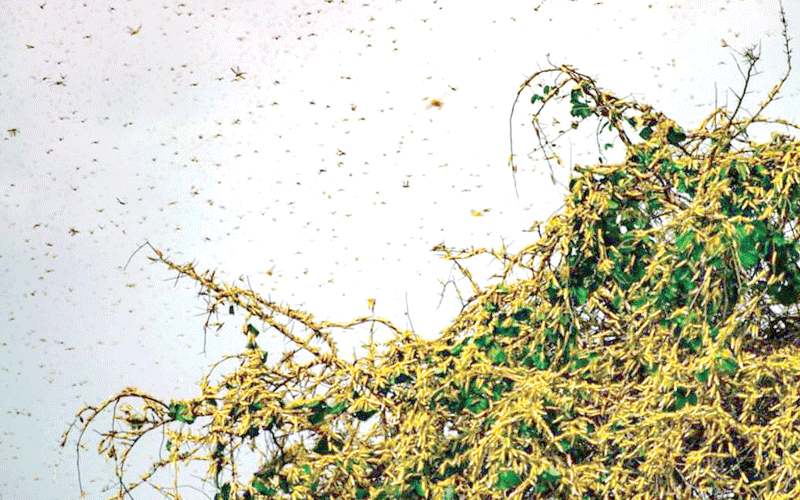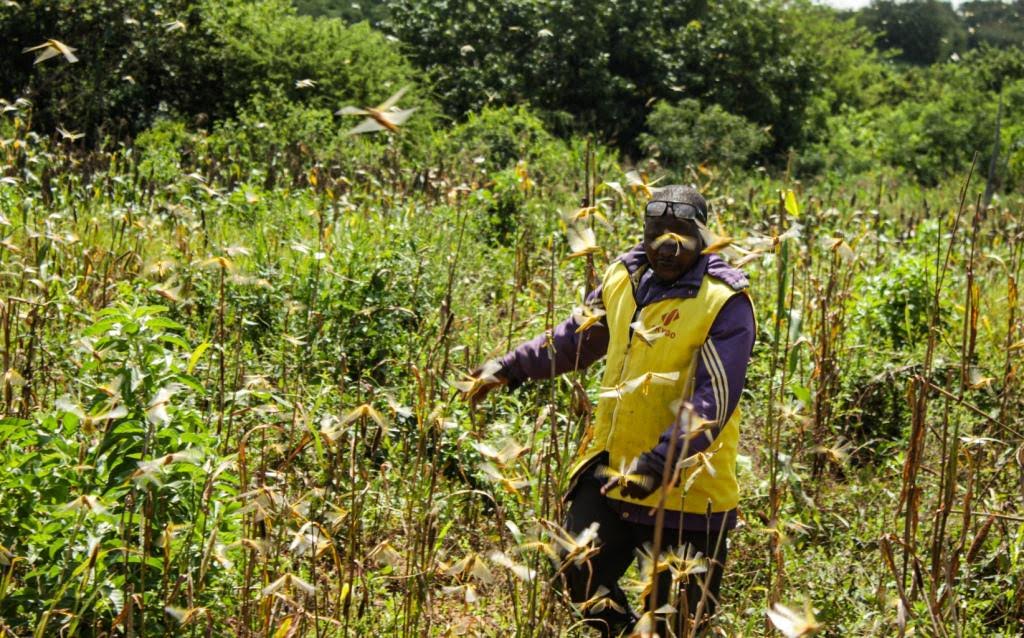Fresh wave of desert locust invasion feared

East African region is faced with the threat of a fresh wave of deserts locust invasion despite restrictions on the movement of personnel and equipment resulting from the Covid-19 pandemic, says Food and Agriculture Organisation (FAO).
The UN agency warns that Kenya is one of the six countries in the region where around 20 million people are experiencing acute food shortage.
“The desert locust upsurge continues to remain alarming, particularly in Ethiopia, Kenya and Somalia, where it poses an unprecedented threat to food security and livelihoods,” says FAO.
The six East African countries worst affected or at risk of locusts include Ethiopia, Kenya, Somalia, South Sudan, Uganda and Tanzania.
Efforts to contain the spread of marauding swarms have been frustrated by restrictions of the movement of personnel and equipment imposed during COVID-19 outbreak.
Despite control operations, recent heavy rains have created ideal conditions for the pest’s reproduction in several countries.
Juveniles became voracious adults in June just as farmers begin to harvest, compounding an already bleak food security situation.
“While lockdown is becoming a reality, people engaged in the fight against the upsurge are still allowed to conduct surveillance, and air and ground control operations,” says Cyril Ferrand, FAO’s Resilience Team Leader, East Africa.
So far, more than 240,000 hectares have been treated with chemical pesticides or biopesticides across the region and 740 people have been trained to conduct ground locust control operations.
But Covid-19 has had an impact on the supply of motorized sprayers and pesticides.













